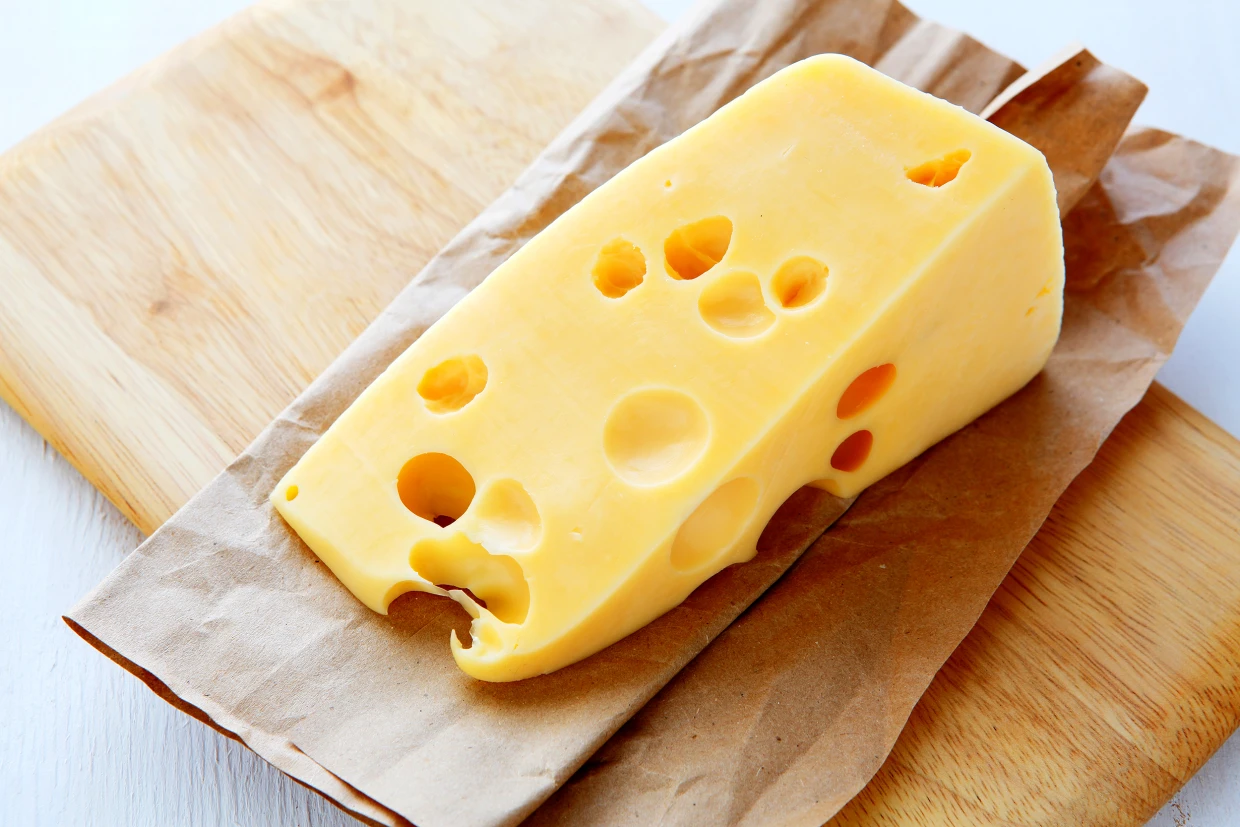Fun Facts About Cheese

Cheese is a very popular and important food item in the world, it is also a very versatile food item that could be used in cooking different kinds and types of foods, and eaten with almost anything edible. All these makes cheese the go to food item for everyone even for cartoon characters, if you ever watched Tom and Jerry, then you’re probably familiar with the sight of Tom trying to trap Jerry with all kinds of things, including cheese. These interesting and unique features about cheese that makes it so desirable is what this article is all about, discussing the fun facts about cheese.
In the past we did write an article about stinky cheese and why they are so loved even when they smell badly, on this article we would covering all the awesome facts about cheese in general that makes cheese loved by all and sundry.
There are two cheese quotes that makes anyone smile and want to have something cheesy, it goes: ‘You make me melt’ and ‘That’s what cheese said’.
Whatever you think of cheese and cheese based meals, after going through these list of facts about cheese, there’s a guaranteed you’d want to have some cheese.
Fun Facts About Cheese
- Cheese is naturally not yellow or red in color, this yellow color is as a result of an additive included in the cheese during the production process. The additive is known as Annatto which is actually a kind of tropical seed.
- To make cheese, the milk is boiled using very high temperature up to as high as 32.2°C(90° F). After boiling, the curds and liquid whey is separated, and an enzyme known as rennet is added.
- Some cheeses can be curdled by adding lemon juice or vinegar.
- The shelf life of hard cheeses far exceeds that of soft cheeses. This is obviously due to the amount and presence of moisture content in soft cheese that makes it softer than hard cheese.
- The unique smells, tastes and blue veins associated with blue cheese, is made as a result of air penetration, when the cheese is pierced with stainless steel needles and copper wires during production.
- Cheese production goes all the way back to the first domestication of sheep in 8000 BCE.
- Greek legend Aristaeus is credited by Ancient Greeks for the discovery of feta cheese, which the Greeks still use in their cuisine.
- The name ‘Cheese’ has its origin traced back to a Latin word ‘caseus’, which when translated meant ‘to ferment or to make sour’.
- In the past, it was once believed that ‘the moon is made of green cheese’. That statement is actually a proverb.
- Since its first production, many types of cheese have come into existence. They include Bel Paese, Bresse Bleu, Brie, Caerphilly, Camembert, Cheddar, Chesire, Cottage Cheese, Cream Cheese, Danish Blue, Demi-Sel, Derby, Dunlop, Double Gloucester, Edam, Emmenthal, Gjestost, Gorgonzola, Gouda, Gruyère, Lancashire, Leicester, Mozzarella, Parmesan, Port Salut, Roquefort, Samsoe, St. Paulin, Stilton, Tome au Raisin, and Wensleydale.
- The US is the world’s leading cheese producer, with over 4,000 tonnes a year. Germany follows with over 1,900 tonnes, whilst France produces around 1884 tonnes.
- The milk used in making Cheese is gotten from different farm animals including cows, goats and sheep, buffalos, horses and camels. The animal milk used in making any cheese is dependent on the region where the cheese was made.
- Greece is one of the highest consumers of cheese in the world with yearly consumption of cheese over 31.1 kg
- France is the next highest consumer of cheese with yearly consumption reaching over 26.1 kg.
- Iceland comes third on the list of highest consumers of cheese with a yearly consumption of over 25.4 kg.
- The USA is known to consume about 18 kg of cheese every year, despite its large population it doesn’t consume as much as France and some other smaller European countries like Greece and Iceland, despite being the world’s leading producer of cheese.
- Cheesemonger is the name for a person selling cheese.
- If you are lactose intolerant (unable to process a type of sugar found in milk and milk products) then you should typically avoid eating cheese.
- Due to their aversion to meat and meat-based products, vegetarians eat vegetable (usually almond or soy based) cheeses.
- Eating cheese before bed has health benefits eating cheese – yet, it was once believed that this could cause nightmares.
- The act of collecting cheese labels called ‘tyrosemiophilia’.
- The famous characters Wallace and Gromit have an affection for Wensleydale cheese on crackers.
The above list of facts about cheese very well describes some things that are not well known about cheese including some mights that were previously believed about cheese. To learn more facts about cheese, you might want to continue to the next section where we answer some of the most popular and frequently asked questions about cheese. These ‘cheesy’ frequently asked questions were sent over by cheese lovers and cooks that make food with cheese.
Cheese FAQs
Who invented a cheese?
Historical documents suggest Cheese was invented by an Arabian merchant several centuries ago. There are also documentations that suggest the Aristaeus(a Greek legend) invented cheese.
How is cheese made facts?
Cheese is made by boiling milk at a very high temperature up to as high as 32.2°C(90° F). After boiling, the curds and liquid whey is separated, and an enzyme known as rennet is added.
What was the first cheese ever made?
The first cheese is to be made in the year 1200 BCE, this cheese was found in Ancient Egyptian tombs.
How old is the oldest cheese?
The oldest cheese is 7200 years old today. It is estimated to have been made in what is known as the present day Croatia.
Can dogs eat cheese?
Yes, dogs can ear cheese. Cheese is not harmful to dogs because it is made of milk which dogs are able to digest perfectly.
Is cheese expired milk?
Yes, cheese is expired milk. But not all expired milk is cheese, the milk has to pass through a specific procedure to become cheese.
Why is cheese called cheese?
Cheese is called cheese because of the origin of the name Cheese. The origin of the name cheese is a latin word known as Caseus which meant ‘to make sour’.
What is the rarest cheese in the world?
The rarest cheese in the world is the Pule Cheese. It is usually made in the country of Serbia.
Which country is famous for cheese?
France is famous for cheese and cheese consumption. Other countries famous for cheese are Switzerland, Greece, Iceland, and Italy.
Is cheese vegan?
No, cheese is not vegan because it is made from animal milk.
What is the stinkiest cheese?
The stinkiest cheese is the Epoisse de Bourgogne. This stinky cheese is known to be from a particular region in France, Burgundy.
What cheese smells like poop?
The cheese that smells like poop is the Taleggio cheese.
What does bad parmesan cheese smell like?
Parmesan cheese when its bad smells moldy like a mold.
Ensure to share this list of facts about cheese with your cheese loving friends and family so they too would learn like yourself some important facts about cheese.



